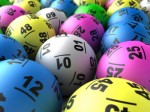A Lottery Loophole (Sorry, Now Closed) in Massachusetts

(iStockphoto)
In the Boston Globe, Andrea Estes and Scott Allen write about how people have been taking advantage of a statistical quirk in the rules of an obscure Massachusetts Lottery game called Cash WinFall. A Michigan couple in their 70s, Marjorie and Gerald Selbee, spent three days buying more than $600,000 in Cash WinFall tickets from two convenience stores in Sunderland, Mass. Their timing was purposeful:
For a few days about every three months, Cash WinFall may be the most reliably lucrative lottery game in the country. Because of a quirk in the rules, when the jackpot reaches roughly $2 million and no one wins, payoffs for smaller prizes swell dramatically, which statisticians say practically assures a profit to anyone who buys at least $100,000 worth of tickets. During these brief periods – “rolldown weeks’’ in gambling parlance – a tiny group of savvy bettors, among them highly trained computer scientists from MIT and Northeastern University, virtually take over the game. Just three groups, including the Selbees, claimed 1,105 of the 1,605 winning Cash WinFall tickets statewide after the rolldown week in May, according to lottery records. They also appear to have purchased about half the tickets, based on reports from the stores that the top gamblers frequent most.
The Globe got a statistics professor at Boston University, Mark Kon, to calculate some odds.
[A] bettor buying even $10,000 worth of tickets would run a significant risk of losing more than they won during the July rolldown week. But someone who invested $100,000 in Cash WinFall tickets had a 72 percent chance of winning. Bettors like the Selbees, who spent at least $500,000 on the game, had almost no risk of losing money, Kon said.
The state treasurer has since announced that stores can only sell $5,000 of Cash Winfall tickets in a given day. Cash Winfall is based on six randomly chosen numbers. The odds of picking all six correctly and winning the $2 million jackpot are 1 in 9.3 million. The game has paid off its full jackpot just once since 2004, and has so far generated $11.8 million in profits in 2011, though it accounts for just 1% of state lottery revenues.
The Globe reports that the Selbees have already claimed nearly $1 million in prize money this year. But because winners have a year to claim their prize, there’s likely more to come.

Comments